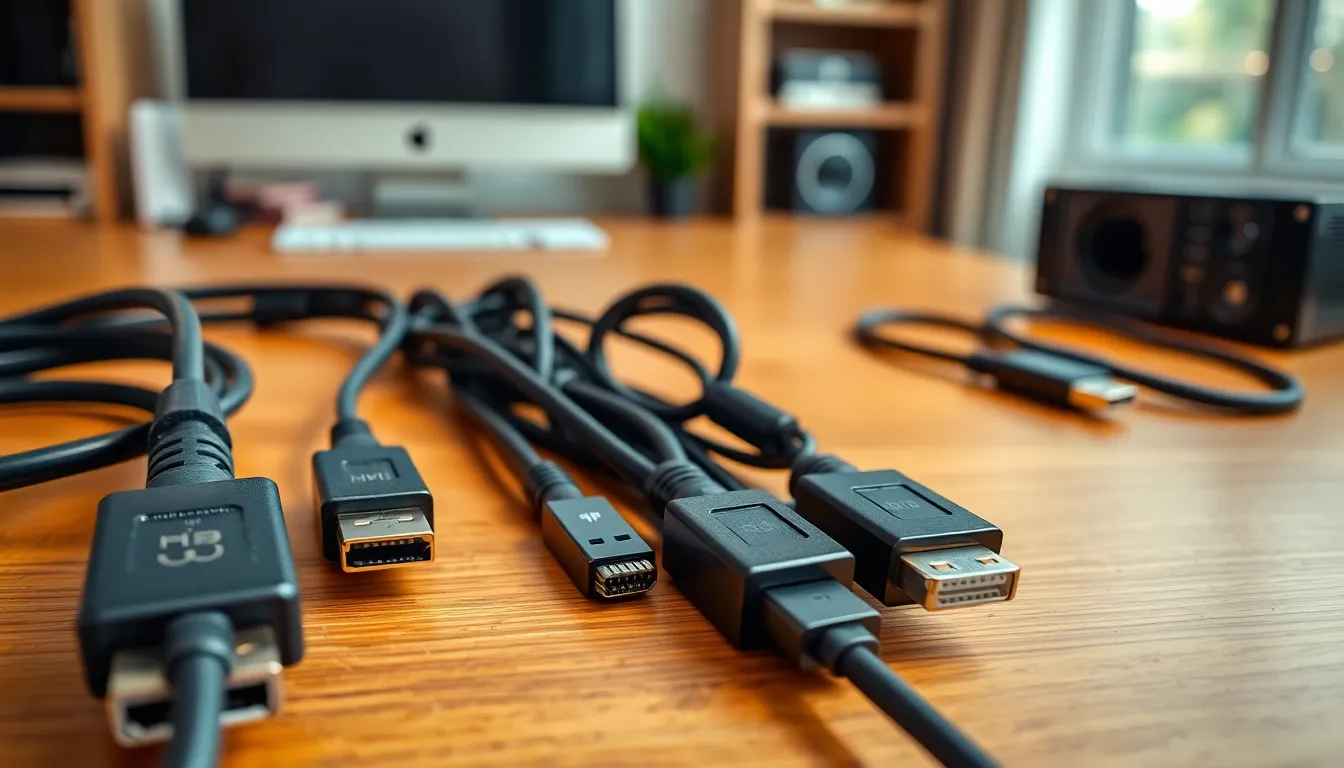Table of Contents
ToggleEver received a call from 8445846330 and wondered who’s on the other end? You’re not alone! This mysterious number has been popping up on countless smartphones across America, leaving many scratching their heads and asking questions.
Whether it’s a legitimate business call, a pesky telemarketer, or something more concerning, knowing the truth about 8445846330 can save you time and potential headaches. In today’s digital world, identifying unknown callers isn’t just convenient—it’s essential for protecting yourself from scams and unwanted interruptions.
What Is 8445846330 and Why Are People Searching For It?
8445846330 is a toll-free phone number that’s generating significant online search interest due to its frequent appearance on caller IDs across the United States. This number belongs to a customer service line for financial services, specifically Chase Bank’s credit card department. Many Americans receive calls from this number daily, prompting them to search for information about its legitimacy and purpose.
Consumers typically search for this number for three primary reasons:
- Verification of legitimacy – Recipients want to confirm if the call is actually from Chase Bank before returning it or providing personal information
- Reporting unwanted contact – Some individuals receive repeated calls from this number despite having no relationship with Chase
- Understanding the purpose – People who missed calls seek to determine if the matter is urgent or can be ignored
The volume of searches for 8445846330 spikes during business hours, with particular concentration in states with high Chase customer populations like California, New York, and Texas. Online forums and review sites contain hundreds of posts from consumers sharing their experiences with this number, ranging from legitimate banking communications to suspected spoofing attempts where scammers disguise their calls as coming from this official Chase line.
Chase Bank officially uses this number for credit card services including payment processing, fraud alerts, and account updates. Distinguishing legitimate calls from this number versus potential scammers using caller ID spoofing has become a critical digital literacy skill for consumers in protecting their financial information.
Common Types of Calls from 8445846330
Callers from 8445846330 reach out to customers for several distinct purposes. Understanding these different call categories helps recipients determine whether they should engage with or avoid these communications from Chase Bank’s credit card department.
Telemarketing Calls
Chase frequently uses 8445846330 for legitimate marketing campaigns targeting existing customers. Representatives call to promote new credit card offers, upgrades to premium cards, or additional banking services based on customer profiles. These calls typically begin with account verification procedures to establish trust. Marketing representatives might highlight limited-time promotional APR offers, cashback rewards programs, or travel benefits available through card upgrades. Many customers report receiving these solicitations during weekday afternoons, with scripts following similar patterns of introducing exclusive offers “only available to valued Chase customers.” Legitimate telemarketing calls from this number always provide opt-out options and never request immediate payment information.
Customer Service Communications
Service-related calls from 8445846330 constitute a significant portion of Chase’s outbound communications. Account specialists use this number to contact customers about transaction verifications, payment reminders, and fraud alerts identified by Chase’s security algorithms. Customer verification teams reach out when unusual spending patterns emerge, often requiring confirmation of recent purchases. Payment assistance representatives call cardholders approaching delinquency to discuss payment options or hardship programs. During natural disasters or widespread service disruptions, this number appears on caller ID when Chase proactively contacts affected cardholders to offer support. These legitimate service calls focus on resolving specific account issues rather than selling new products.
Potential Scam Activities
Fraudsters increasingly spoof 8445846330 to exploit its association with Chase Bank. These imposters manipulate caller ID systems to display Chase’s legitimate number while attempting to extract sensitive information. Scam calls typically create artificial urgency through false claims about account suspension, unauthorized charges, or required “security updates.” Victims report callers requesting verification of complete card numbers, CVV codes, online banking credentials, or one-time passcodes – information legitimate Chase representatives never solicit. Some sophisticated scams involve transferring victims to fake “security departments” after initial contact. Chase Bank explicitly states they never request Social Security numbers, account PINs, or full card details during outbound calls, making such requests immediate red flags of fraudulent activity.
How to Identify if 8445846330 Is Legitimate
Determining the legitimacy of calls from 8445846330 requires specific verification steps to protect yourself from potential scams while ensuring you don’t miss important communications from Chase Bank.
Verifying the Company Behind the Number
Official website verification provides the most reliable confirmation of 8445846330’s legitimacy. Consumers can visit Chase.com and navigate to their “Contact Us” section where all official phone numbers are listed. Calling Chase directly through their main customer service line (1-800-935-9935) allows customers to confirm if 8445846330 belongs to their organization. Bank statements often display this number in the contact information section, offering another verification method. Chase representatives can verify recent outbound calls made to customers when asked. The number’s toll-free prefix (844) aligns with legitimate business practices used by major financial institutions, though this alone isn’t definitive proof of authenticity.
Reading Online Reviews and Reports
Consumer review platforms like TrustPilot and BBB contain numerous reports about 8445846330, detailing others’ experiences with this number. Scam-tracking websites including ScamAdviser and 800Notes feature user-submitted entries that help identify patterns of legitimate or suspicious behavior. Google searches combining “8445846330” with terms like “legitimate” or “scam” reveal relevant discussion threads on Reddit and other forums. Complaint databases maintained by the FTC and CFPB offer insights into any formal reports filed against this number. Review aggregation sites compile consumer experiences, creating a consensus about the number’s trustworthiness. Recent reviews carry more weight than older posts since calling practices and scammer tactics evolve over time.
Ways to Handle Calls from 8445846330
Effective management of calls from 8445846330 requires understanding specific handling techniques based on their legitimacy and your preferences. These practical approaches help maintain your privacy while ensuring you don’t miss important communications from Chase Bank’s credit card department.
Blocking the Number on Different Devices
Blocking unwanted calls from 8445846330 varies across device platforms. iPhone users can tap the info icon beside the number in their recent calls list, scroll down, and select “Block this Caller.” Android users access similar functionality by opening their Phone app, tapping the three dots menu, selecting “Settings,” then “Block numbers,” and entering 8445846330. Landline users typically dial *60 followed by the number to activate blocking features. Samsung Galaxy owners benefit from additional built-in spam protection through their “Smart Call” feature. Google Pixel phones offer call screening options that allow users to review calls before accepting them. Most modern smartphones include integrated spam detection that automatically flags suspicious numbers like 8445846330 if it’s been reported multiple times.
Reporting Unwanted Calls
Reporting unsolicited calls from 8445846330 strengthens consumer protection systems nationwide. Consumers can file complaints directly with the Federal Trade Commission through their DoNotCall.gov website or by calling 1-888-382-1222. The Federal Communications Commission accepts reports through their Consumer Complaint Center, requiring details like date, time, and nature of the call. Mobile carriers maintain dedicated channels for reporting unwanted calls—AT&T offers the Call Protect app, Verizon provides a spam reporting feature via text message, and T-Mobile includes Scam Shield services. Chase customers receiving suspicious calls supposedly from this number should contact Chase’s fraud department at 1-800-432-3117. Organizations like Better Business Bureau and Consumer Reports gather consumer experiences about problematic numbers, creating valuable databases that help others identify potential threats.
Protecting Yourself from Unwanted Phone Communications
Unwanted calls from numbers like 8445846330 can be managed through several protective measures. These strategies help consumers maintain privacy while filtering legitimate communications from potential scams or unwanted marketing attempts.
Privacy Settings and Do Not Call Registry
The National Do Not Call Registry offers a first line of defense against telemarketing calls, including those from legitimate businesses like Chase Bank. Consumers can register their phone numbers at donotcall.gov or by calling 1-888-382-1222, with registrations remaining active indefinitely. Most legitimate companies respect this list, reducing unwanted promotional calls significantly. Mobile device privacy settings provide additional protection—iPhone users can activate “Silence Unknown Callers” in Settings, while Android users can configure similar features through the Phone app settings. Banking customers concerned about missing important calls from 8445846330 can create exceptions for specific numbers while maintaining broader privacy protections. These combined approaches effectively minimize disruptions while ensuring important communications still reach you.
Phone Spam Detection Tools
Third-party spam detection applications enhance protection beyond standard device settings when dealing with calls from numbers like 8445846330. Popular apps such as Truecaller, Hiya, and RoboKiller maintain extensive databases of known spam numbers and utilize community reporting to identify new threats. These applications automatically flag suspicious calls, display caller information, and can block unwanted communications before they interrupt your day. Google Phone and Samsung’s Smart Call offer built-in detection capabilities on compatible devices, identifying potential spam calls as they arrive. Many carriers now provide free spam-filtering services—T-Mobile’s Scam Shield, AT&T’s Call Protect, and Verizon’s Call Filter all help identify questionable calls. These tools typically display “Spam Likely” warnings when receiving calls from flagged numbers, allowing users to make informed decisions about answering calls from entities like Chase Bank’s credit card department.
Conclusion
Navigating calls from 8445846330 requires both awareness and caution. This legitimate Chase Bank number serves important credit card functions but has also become a target for spoofing by scammers.
Armed with verification techniques and call management strategies, consumers can confidently distinguish between authentic Chase communications and potential threats. Utilizing blocking features, reporting mechanisms and third-party protection tools provides a robust defense against unwanted interruptions.
Remember that legitimate Chase representatives won’t ask for sensitive information during outbound calls. When in doubt about any communication from this number, contacting Chase directly through official channels remains the safest approach to protecting personal information while maintaining necessary banking relationships.








